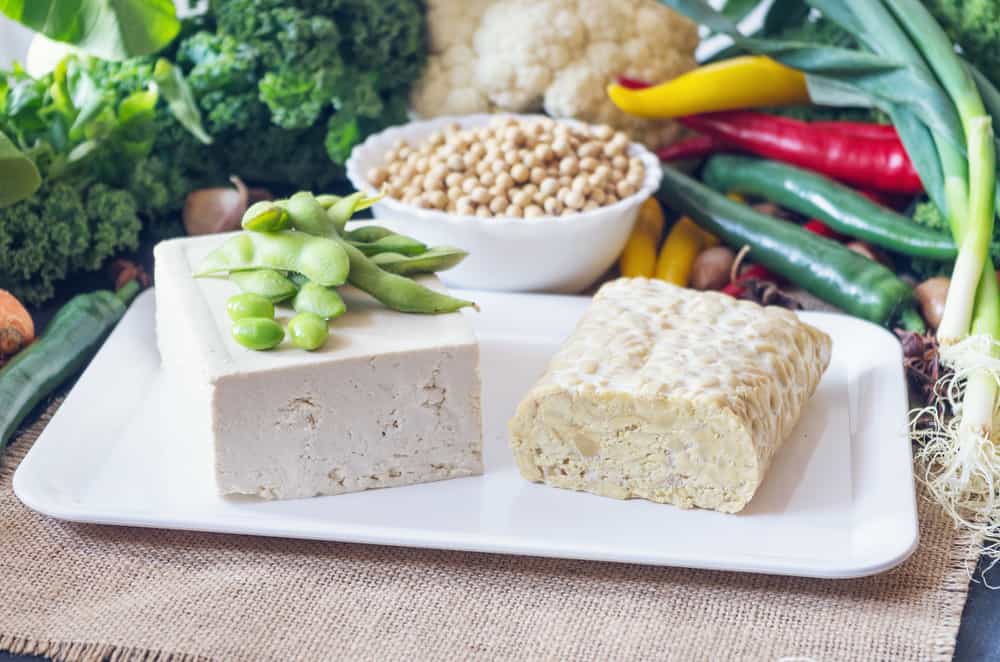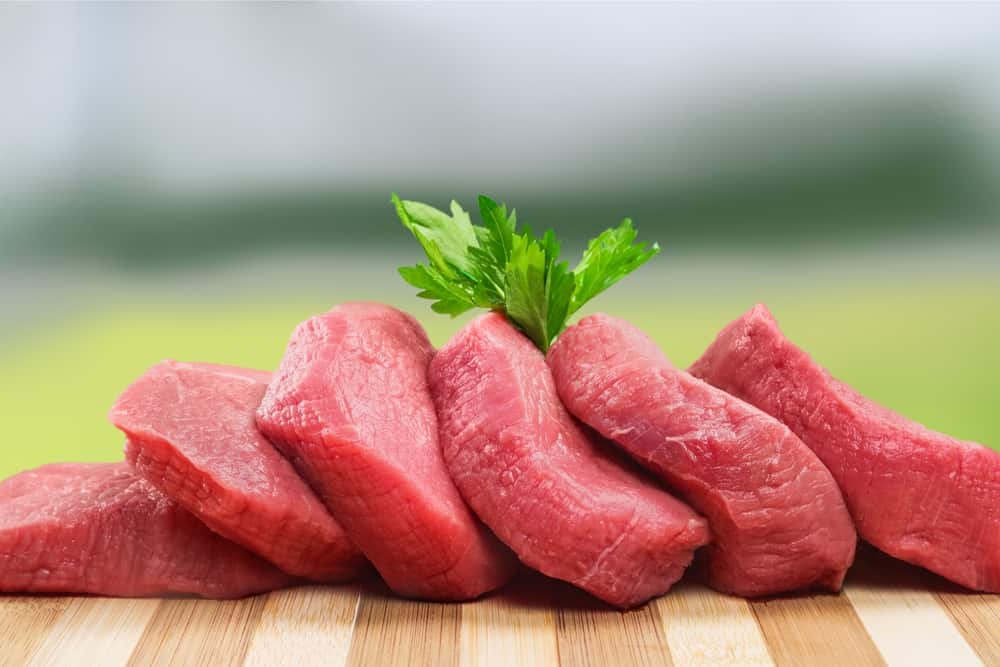Contents:
Medical Video: Vegan Protein Sources | The 11 Best Vegetarian Protein Foods
Today, more and more people are choosing to reduce meat consumption and switch to other meat substitute protein sources for various reasons; from adaptation to being a vegan, efforts to reduce carbon footprint, reduce the risk of heart disease, obesity, and diabetes, or just want to limit processed meat products. Whether the effort to stop eating meat is classified as healthy or not, until now it is still a heated debate, but it does not stop this trend from continuing to grow.
But how do you get enough protein if you don't eat meat?
Yes, meat and eggs are complete proteins, and nuts and seeds are not. But actually, humans don't need all nine essential amino acids in every bite of the food they eat; we only need a sufficient amount of each amino acid every day - after all, there are already 11 amino acids that are automatically produced by the body.
In this article, we present 11 of the best sources of vegetable protein - vegetables, nuts and seeds, and alternatives to meat with a minimum process, such as tempeh - for you.
1. Tempe
There is no doubt why this fermented soybean meal is one of the favorite staples of Indonesians. Per 100 grams of tempeh contained 201 kcal of energy, 20.8 g of protein, 8.8 g of fat, 13.5 g of carbohydrates, 1.4 g of fiber, calcium, B vitamins and iron.
One more plus point of tempeh, besides the cheap price, you can make tempeh into various dishes filling a substitute for red meat, starting from orek tempe, sambal tempe, to making "meatballs".
2. Know
Tofu includes foods that are low in calories (70 kcal), cholesterol (0%), and sodium (1%). Per 100 grams, tofu is also a good source of protein (8 grams), iron (9 percent), magnesium (37 mg), phosphorus (121 mg), copper (0.2 mg), and selenium (9.9 mcg), and an excellent source of calcium (201 mg) and manganese (0.6 mg)
Starting from tofu contents, to pepes tofu, tofu is very versatile to be processed into a filling dish. For the alternative, can you combine tofu into kailan stir-fry or want to try making sweet tofu for dessert today?
3. Edamame (Japanese soybeans)
Foods made from soybeans are the highest source of vegetable protein. After tofu and tempeh, now a distant brother, edamame. In the simplest form, boiled edamame, this favorite Japanese snack contains 11.4 grams of protein, 6.6 grams of lipids, 7.4 grams of carbohydrates, 1.9 grams of fiber, 70 mg of calcium, and 140 mg of phosphorus.
When you get bored with the boiled version, you can eat the edamame by sautéing it along with your other favorite vegetables, or add it to salads or pasta.
4. Quinoa
Quinoa, technically included in the grain family, is a superfood championed by many nutritionists - this is not without reason. Per 100 grams, quinoa is enriched by 4 grams of protein, fiber (2.8 gr), iron (1.5 mg), magnesium (64 mcg), manganese (0.6 mcg), and includes all nine essential amino acids that the body needs for growth and repair, but it cannot be produced alone. (For this reason, quinoa is often referred to as "perfect protein").
Quinoa is a good and flexible alternative to rice to put on muffins, fried foods, pastries, soups, oatmeal breakfast cereal toppings, or as a filling topping in salads at lunch.
5. Chickpea (Arabian beans)
Also known as garbanzo beans, these beans can be sprinkled on salads, fried and salted for crispy snacks, or mashed into hummus (just process a handful of Arab nuts with some spices and tahini or almond oil into a blender until smooth).
Arab beans are a fairly high source of protein, which is 9 grams of protein per 100 grams. This bean is also a good source of food from dietary fiber (8 gr), folate (172 mcg), and manganese (1 mcg). Arab nuts are low in saturated fat, cholesterol and sodium.
6. Almonds
One ounce of roasted almonds without salt contains 5.5 grams of carbohydrates, 3.3 grams of dietary fiber, 8% calcium, 7% iron, and 6.5 grams of protein.
Almonds are also a good source of vitamin E, which is good for the health of your hair and skin. These nuts also provide up to 61% of the recommended daily magnesium intake. This high magnesium content in almonds makes it effective for suppressing sugar cravings, encouraging bone health, and relieving muscle aches and spasms.
7. Chia seed
Chia grains are the highest source of vegetable oils containing omega-3 fatty acids, and contain more fiber than flaxseeds or peanuts. Just two tablespoons of Chia seeds, your body will be enriched by 2 grams of protein and 11 frams of food fiber. Chia is also a good source of food for iron, calcium, zinc, and antioxidants. However, chia seed has little lysine content.
Chia seeds can be sprinkled on salads, stirred into yogurt or oatmeal, mixed into smoothies, or made the main star in your diet: these grains will expand and change the texture as if soaked in liquid (water or milk), so it forms a soft and dense cream. This uniqueness makes Chia seeds a great food for making healthy pudding, thickening smoothies, or replacing eggs for processing pastries or cakes.
8. Spinach
Vegetables do not have as much protein as nuts or seeds, but some types of dark green leafy vegetables contain an almost equal amount of nutrition - and are also enriched by antioxidants and fiber that are good for heart health. Spinach, for example.
Per 100 grams of boiled spinach contains 2.4 grams of dietary fiber, 3 grams of protein, 209 percent of vitamin A, 16 percent of vitamin C, 13 percent of calcium, and 20 percent of iron.
9. Broccoli
Broccoli is not only a vegetable source that is rich in fiber, but also contains protein in amounts that are quite surprising for a vegetable. Per 100 grams of boiled broccoli, you will get 2 grams of protein, 40 mg of calcium, 67 mcg of phosphorus, 31% of vitamin A, and 108 mcg of folate. Broccoli also contains sulforaphane, an anti-cancer compound.
10. Potatoes
Despite its reputation as a nutrient-empty food, one medium-sized potato (around 150 grams) boiled with skin and without salt contains 4 grams of protein along with about 20% of the recommended daily intake of potassium, which promotes heart health.
Do you like fries typical of fast food restaurants? Why not replace your favorite menu occasionally with growing potatoes or baked potatoes, two alternatives that are far more healthy?
11. Avocados
This super dense green fruit is so delicious and creamy thanks to its monounsaturated fatty acids and protein. Half a medium sized fresh avocado contains 77% fat, 19% carbohydrate, and 4% protein (2 grams).
Avocados are also very flexible. You can eat it right away when done, put the avocado slices into your salad, crushed as guacamole with peppers, tomatoes, and lime, or blender with frozen bananas or whey protein for the filling fresh smoothies.
READ ALSO:
- Lack of sleep? Try Camil this Food
- Healthy Food Tips at Fast Food Restaurant
- 10 Foods That Make Us Longer












